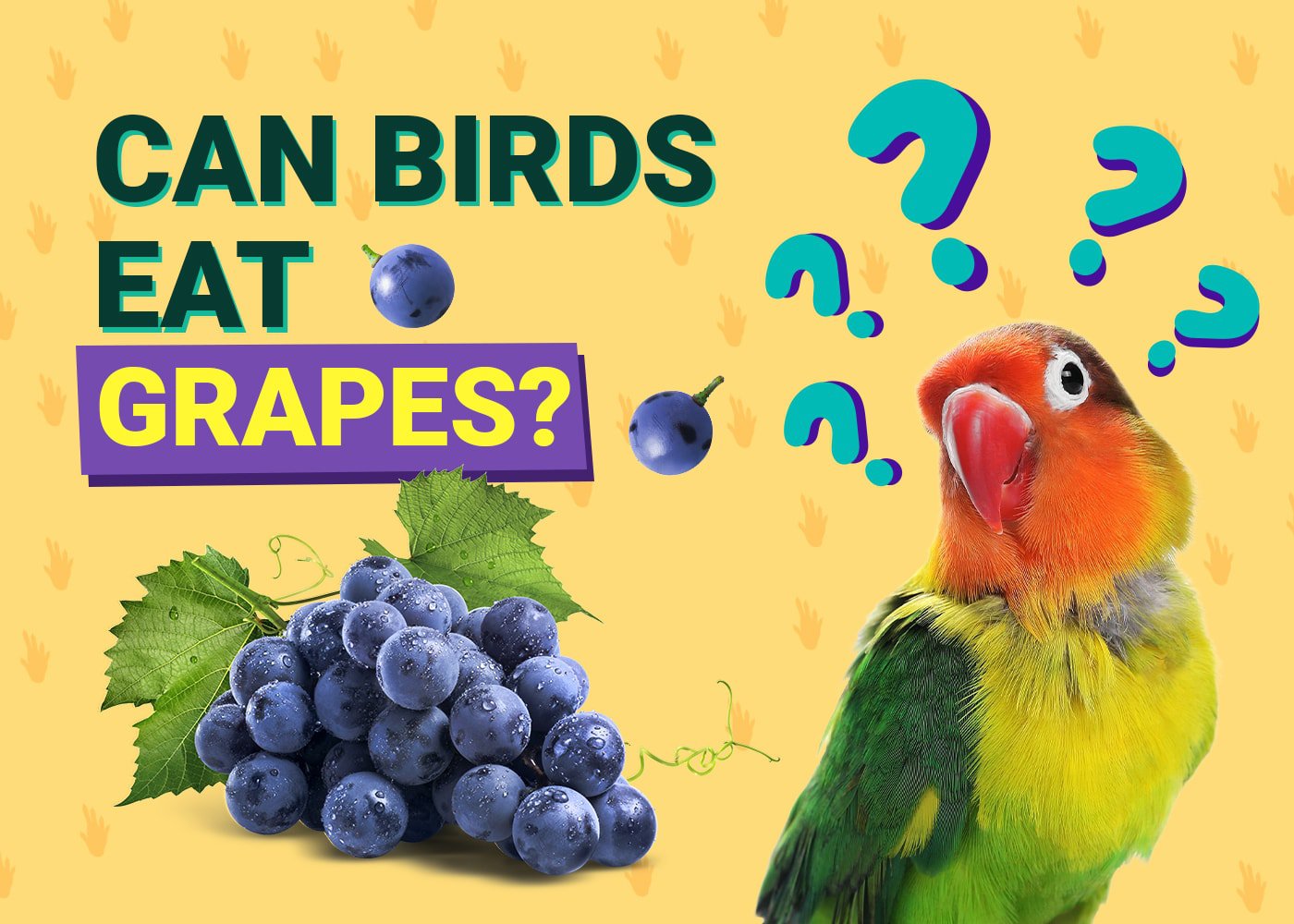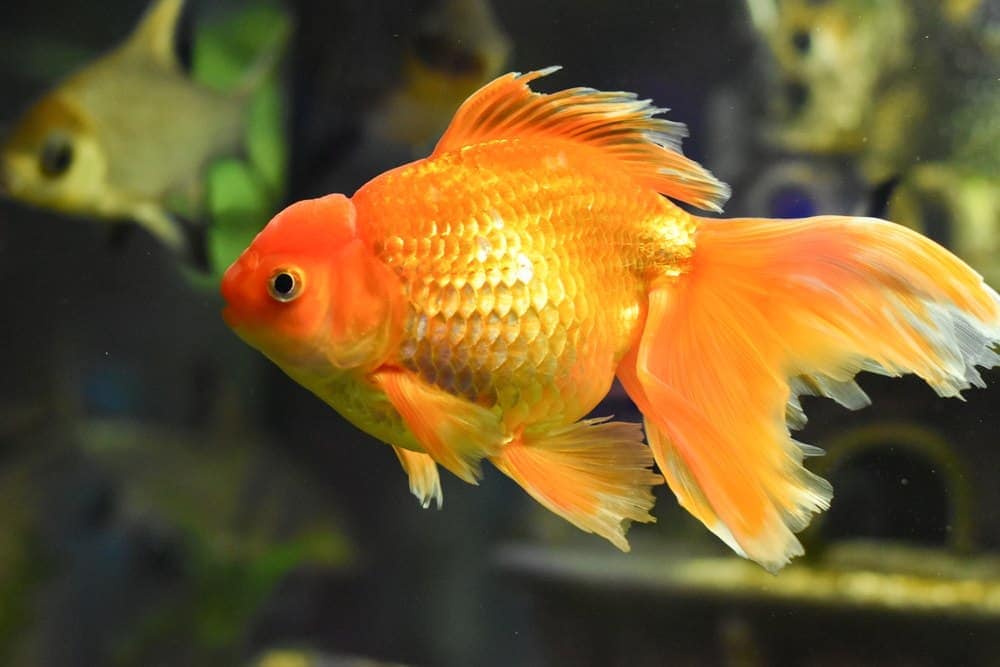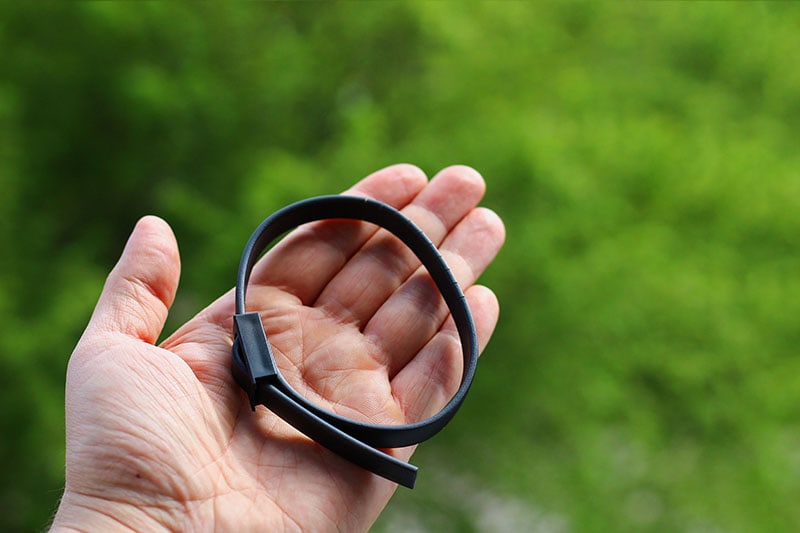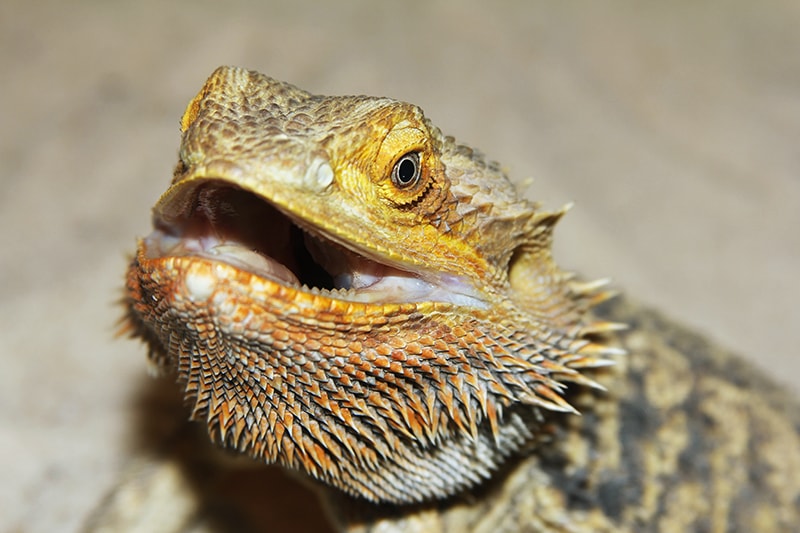VET APPROVED

The information is current and up-to-date in accordance with the latest veterinarian research.
Learn more »Click to Skip Ahead
You might have heard that grapes are toxic to dogs and cats, which would understandably lead you to wonder if the same applies to birds. Fortunately, it does not. Birds can eat grapes. In fact, they make a refreshing and nutritious treat since they are packed full of essential nutrients and vitamins that birds need. However, be mindful of their fructose content as grapes are high in naturally produced sugar, which may cause problems for some birds (notably smaller birds) since they need less energy.
If feeding wild birds, a freshly cut grape will attract a hungry flock with its fragrant flesh (particularly the humble Blackbird). Pet birds also delight in eating grapes as they provide a sweet, refreshing treat.

Are Grapes Harmful to Birds?
While grapes are beneficial to birds and are safe to feed to your bird, there are a few things you should be mindful of when serving grapes.
Pesticides
Grapes have a wax-like coating on them which is the perfect canvas for pesticides to stick to. If a bird is fed a grape (or any fruit for that matter) contaminated with enough pesticides, it could get very sick (or even die).
Washing grapes thoroughly before serving them should be a step you have already undertaken, but we recommend that you be vigilant with washing any grapes you want to give to your feathered friends.
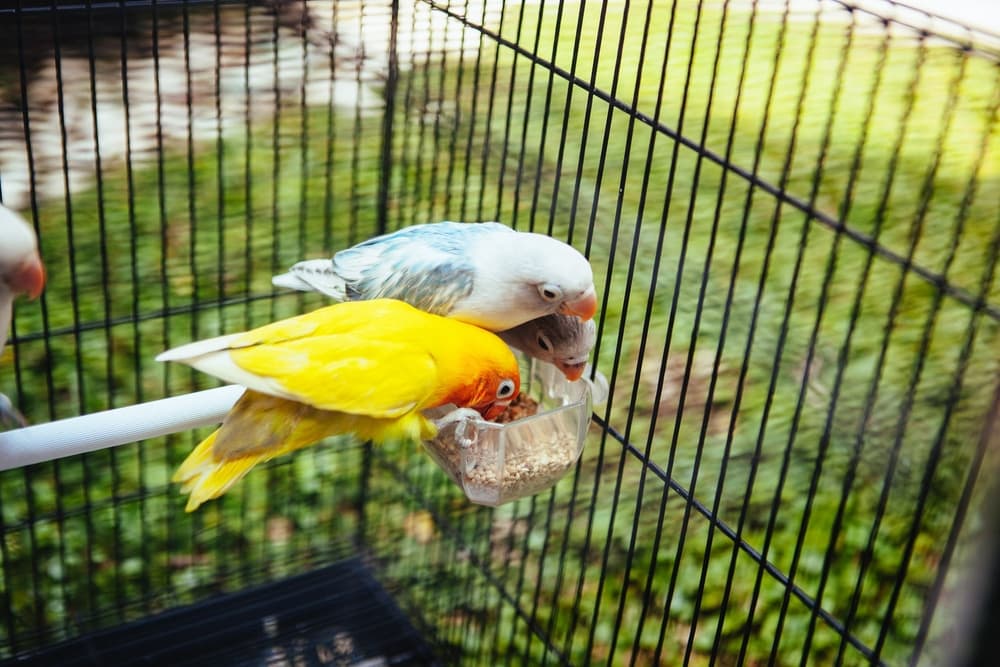
Obesity
Obesity in birds can be caused by feeding too many sweet treats, like grapes.
Use grapes as an occasional treat since too much sugar in your bird’s diet can cause them to become overweight, leading to poor health and shorter lifespans.
- Rounded body
- Breathlessness or trouble breathing
- Extraordinarily long beaks—a sign of fatty liver disease
- Poor movement or leg/foot injury
- Arthritis
Unbalanced Diets and Deficiency
Because grapes are so temptingly tasty to birds, many will only settle for the juicy fruit when offered alongside their regular food, leading to selective feeding and potential malnutrition.
In particular, vitamin A deficiency is one to be vigilant for in birds since vitamin A is vital to keeping their immune systems functioning as they should be, and a lack of vitamin A causes a whole host of symptoms, including feather plucking, conjunctivitis, respiratory infections, and lesions on the feet.
We recommend supplementing your bird’s diet with vitamin A-rich foods or supplement powder. Spirulina is an excellent choice and is generally well tolerated. It contains plenty of vitamin A to help mend a vitamin-deficient bird.
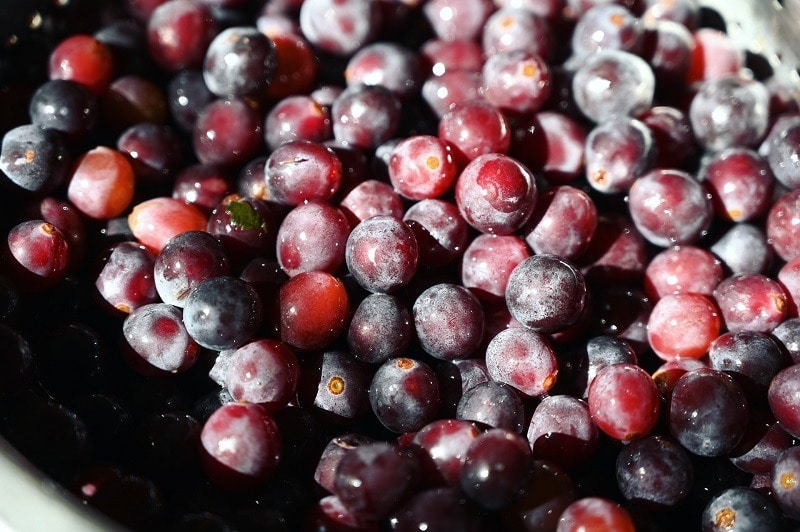
How Many Grapes Can a Bird Eat?
“Everything in moderation” is the name of the game when it comes to feeding your bird grapes. Keeping grapes as a tasty treat will prevent the issues mentioned above, and we recommend feeding grapes sparingly.
Rationing the grapes will not only keep your beloved bird in tip-top shape, but they will still excite and enrich your bird when they get to enjoy grapes. Birds that eat too many grapes all at once can experience digestive discomfort or diarrhea; they cannot absorb all the fructose in the grapes.
What Is a Good Portion Size of Grapes for a Bird?
This will very much depend on the size of the bird, so some judgment will be necessary here. For smaller bird species, 1–2 grapes per week, but into quarters, is plenty. Large parrots can enjoy a few more, around 4–5 grapes per week, cut into halves.
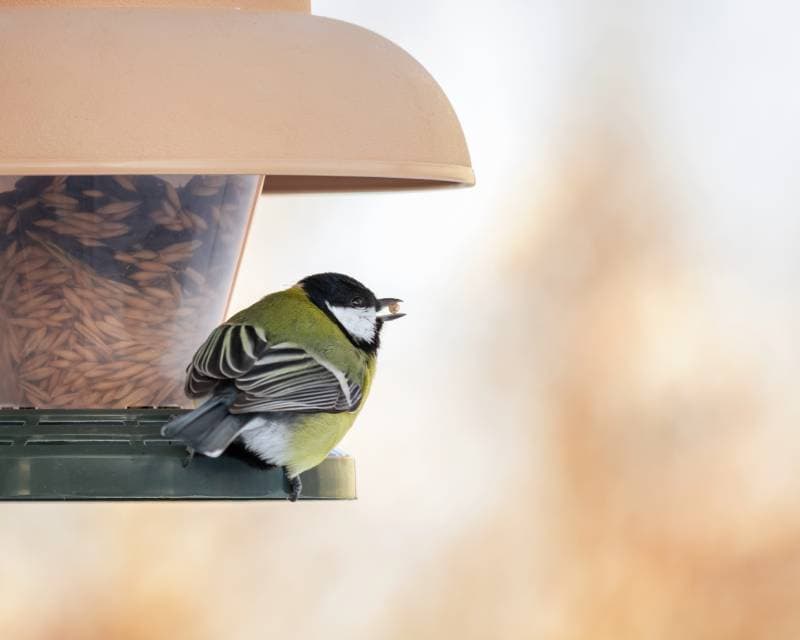
Are Green Grapes Good for Birds?
Whole green grapes seem to be the common go-to for bird owners (and people!), and birds can safely enjoy any type of grape: black, red, or green-skinned. Green grapes are great sources of vitamin C as well as manganese and fiber, and feeding green grapes (skin and all) is an acceptable way to enrich and vary their diets.
Can Birds Eat Grapes With Seeds?
Feeding your bird grapes with seeds is perfectly safe.
- Calcium
- Iron
- Phosphorus
- Zinc
Grape seed oil is even used as a super healthy food for people! Your bird will enjoy fishing out the seeds from the grape’s flesh. If you’re worried about serving grapes with seeds, it’s also okay to give them the seedless variety. There are some fruit seeds, however, that you should never give your bird, namely apple, apricot, peach, and cherry. These seeds contain amygdalin, which is a precursor that breaks down into cyanide.

Conclusion
Grapes are a tasty and healthy snack for your bird, but only in moderation. Overfeeding your bird grapes can cause health problems like obesity and vitamin deficiency, so keep them as a treat a few times a week.
- https://www.gardenbirdfeeder.co.uk/do-birds-eat-grapes/
- https://www.whatbirdsareinmybackyard.com/2020/01/fruits-you-should-be-feeding-backyard-birds.html
- https://birdskeeping.com/can-birds-eat-grapes/
- https://www.britannica.com/video/179994/Overview-fruits-coating-apples-grapes#
- https://time.com/5234787/dirty-dozen-pesticides/
- https://www.tasteofhome.com/collection/dirty-dozen-fruits-and-vegetables/
- https://www.petplace.com/article/birds/general/is-your-bird-overweight/#
- https://vcahospitals.com/know-your-pet/obesity-in-birds
- https://www.msdvetmanual.com/exotic-and-laboratory-animals/pet-birds/nutritional-diseases-of-pet-birds
- https://www.webmd.com/diet/health-benefits-grape-seed
- https://birdsupplies.com/pages/poisonous-foods-for-parrots
- https://hutchandcage.com/can-parrots-eat-grapes-size-and-portions/
- http://www.aviannutritionresource.co.uk/species/documents/24.pdf
- https://www.webmd.com/diet/ss/slideshow-health-benefits-of-grapes#
Featured Image Credit: Jene Yeo, Unsplash
